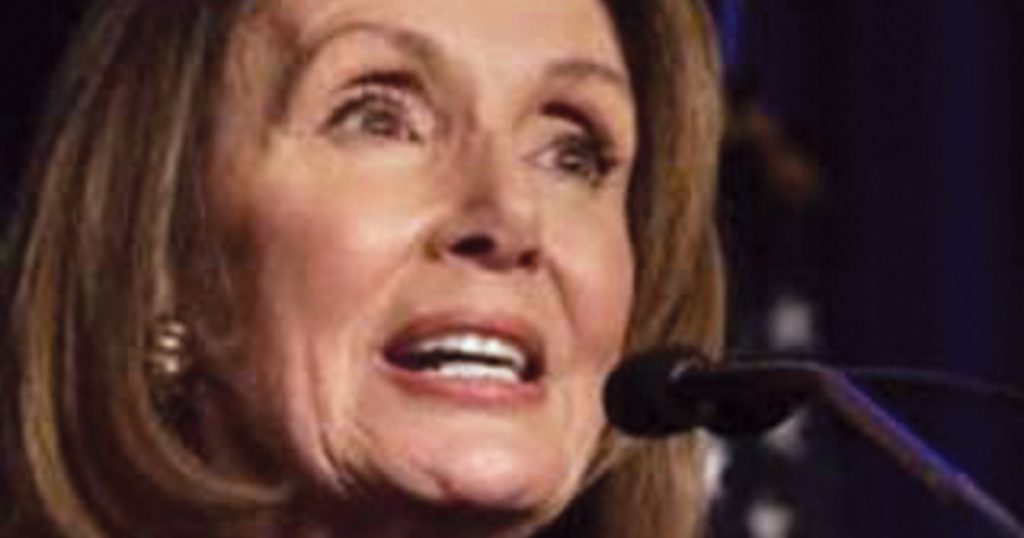The bill would raise around $740 billion in revenue over the decade, over a third from government savings from lower drug prices. More would flow from higher taxes on some $1 billion corporations, levies on companies that repurchase their own stock and stronger IRS tax collections. About $300 billion would remain to defray budget deficits, a sliver of the period’s projected $16 trillion total.
Against the backdrop of GOP attacks on the FBI for its court-empowered search of former President Donald Trump’s Florida estate for sensitive documents, Republicans repeatedly savaged the bill’s boost to the IRS budget. That is aimed at collecting an estimated $120 billion in unpaid taxes over the coming decade, and Republicans have misleadingly claimed that the IRS will hire 87,000 agents to target average families.
Rep. Andrew Clyde, R-Ga., said Democrats would also “weaponize” the IRS with agents, “many of whom will be trained in the use of deadly force, to go after any American citizen.” Sen. Chuck Grassley, R-Iowa, asked Thursday on “Fox and Friends” if there would be an IRS “strike force that goes in with AK-15s already loaded, ready to shoot some small business person.”
Few IRS personnel are armed, and Democrats say the bill’s $80 billion, 10-year budget increase would be to replace waves of retirees, not just agents, and modernize equipment. They have said typical families and small businesses would not be targeted, with Treasury Secretary Janet Yellen directing the IRS this week to not “increase the share of small business or households below the $400,000 threshold” that would be audited.
Republicans say the legislation’s new business taxes will increase prices, worsening the nation’s bout with its worst inflation since 1981. Though Democrats have labeled the measure the Inflation Reduction Act, nonpartisan analysts say it will have a barely perceptible impact on prices.
The GOP also says the bill would raise taxes on lower- and middle-income families. An analysis by Congress’ nonpartisan Joint Committee on Taxation, which didn’t include the bill’s tax breaks for healthcare and energy, estimated that the corporate tax boosts would marginally affect those taxpayers but indirectly, partly due to lower stock prices and wages.
The bill caps three months in which Congress has approved legislation on veterans’ benefits, the semiconductor industry, gun checks for young buyers and Ukraine’s invasion by Russia and adding Sweden and Finland to NATO. All passed with bipartisan support, suggesting Republicans also want to display their productive side.
It’s unclear whether voters will reward Democrats for the legislation after months of painfully high inflation dominating voters’ attention and Biden’s dangerously low popularity with the public and a steady history of midterm elections that batter the party holding the White House.
Download Modern Healthcare’s app to stay informed when industry news breaks.
The bill had its roots in early 2021, after Congress approved a $1.9 trillion measure over GOP opposition to combat the pandemic-induced economic downturn. Emboldened, the new president and his party reached further.
They called their $3.5 trillion plan Build Back Better. Besides social and environment initiatives, it proposed rolling back Trump-era tax breaks for the rich and corporations and $555 billion for climate efforts, well above the resources in Friday’s legislation.
With Manchin opposing those amounts, it was sliced to a roughly $2 trillion measure that Democrats moved through the House in November. He unexpectedly sank that bill too, earning scorn from exasperated fellow Democrats from Capitol Hill and the White House.
Last gasp talks between Manchin and Senate Majority Leader Chuck Schumer, D-N.Y., seemed fruitless until the two unexpectedly announced agreement last month on the new package.
Manchin won billions for carbon capture technology for the fossil fuel industries he champions, plus procedures for more oil drilling on federal lands and promises for faster energy project permitting. Centrist Sen. Kyrsten Sinema, D-Ariz., also won concessions, eliminating planned higher taxes on hedge fund managers and helping win the drought funds.
